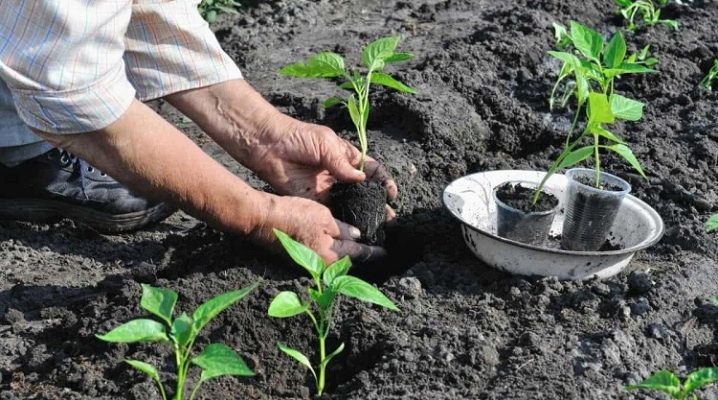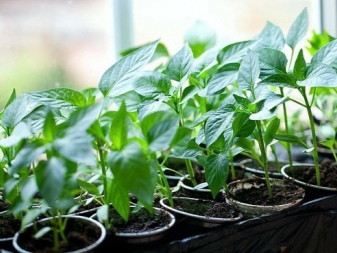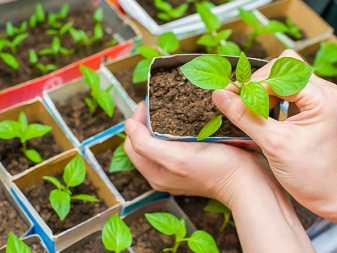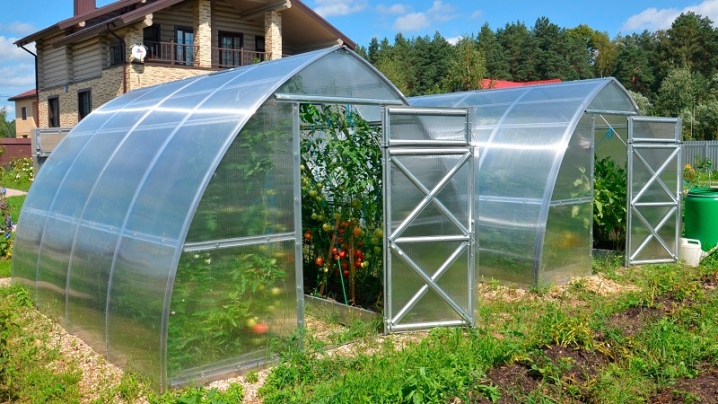How far to plant peppers?

There are a lot of points that make up the rules for competent planting of garden crops. For example, one of them is the distance between seedlings. What determines this indicator, if pepper is planted, and is there a difference between planting in a greenhouse and in open ground - this will be discussed in the article.


What depends on the stocking density?
You need to start with a fundamental question - why is this, in general, necessary. Different crops are planted in different patterns. There is no one-size-fits-all system. Moreover, it is necessary to take into account the nuances of care that are needed by neighboring cultures. More than once, summer residents made mistakes in planting, and then weeding, loosening, and forming a bush became very inconvenient. Stocking density affects:
- saving space in an open area;
- excellent harvest, or rather, full-fledged formation of all parts of plants without a lack of lighting, access to oxygen;
- seedling growth rate;
- the risk of the development of plant decay processes (its thickening raises it at times);
- the availability and comfort of caring for the culture.
The scheme works both in the greenhouse and in the open field (but this will not be the same scenario). The distance is primarily maintained for the rhizome. Where the bushes can be simply thinned out, so that the crown does not grow too densely, is not very dense, in relation to the roots of the action "after" cannot be. Their freedom to grow can be adjusted only with the correct distance when landing.
And also the planting scheme allows you to calculate the amount of fertilizer, and this will come in handy in the future. And even watering the soil is much more convenient when the ground under the bush is clearly visible, and you can see from it whether it is moistened, or you urgently need to "water" it.


Fundamental rules
Peppers are planted in May or June, depending on the region, variety and other factors. But first of all it depends on the temperature regime. If the soil has warmed up, you can plant it. Previously, the land is thoroughly fertilized with mineral compounds and humus. Then small holes are made in the ground, which will be equidistant from each other.
What other rules must be followed:
- the soil should be warmed up to at least +15 degrees, and, most importantly, there should be no threat of return frosts;
- only hardened seedlings are ready for planting, which are already 60-80 days old, it has 6-8 true leaves and a couple of buds;
- the area for pepper should be well lit, protected from strong winds;
- the soil should be fertile and light, sufficiently loose, with good air permeability and a neutral acidity level (pH 6-7);
- to prepare the soil, in an amicable way, it is necessary even in the fall - when digging into the ground, a complex fertilizer with phosphorus, potassium and nitrogen in the composition must be applied;
- the landing itself should take place in cloudy weather, it can even be rainy, or even better after sunset - active rays are destructive for plants that need to adapt to a new place;
- seedlings are transplanted together with an earthen clod so that the root system remains safe;
- for the plant to take root better, it can be treated with a growth stimulant;
- in the holes where the peppers will go, you can pour small pebbles on the bottom, it will be good drainage, and in order to normalize the acidity, they often put wood ash;
- it is better not to plant peppers where eggplants, tomatoes, potatoes and peppers grew before it.
Pepper loves all these conditions, adapts well to them, and if you also plant it at an optimal distance, the harvest forecasts are very good.


Optimal distance
It's time for numbers. And they are different for the spacing between the bushes and between the beds. But there is still a distance between seedlings, which is taken into account at the very beginning of pepper cultivation.
For seedlings
When planting seedlings, you need to calculate the distance between the bushes, it is called the radius of free space. It is necessary to maintain at least 40 cm between the seedlings. If the variety is tall, the bushes will quickly rush into growth, and space is vital for them so that the lashes are formed with sufficient density. From time to time they will then be pruned, and the bush will form about one stem.
Seedlings are planted in a hole along one row. It is better if it is an ordered bed with a uniform soil composition and good illumination. If this is a low-growing seedling with bushes that do not grow higher than 60 cm, it is necessary to calculate the interval of 50 cm. On such bushes, fruits are formed even on the side lashes, therefore they are not pruned.

Between the bushes
The main emphasis is on how quickly the lashes will grow. If this is a late-variety seedling, the spacing between the bushes is reduced. If bell peppers are tied to a support, then space is even saved, and rightly so.
The garter removes the need for additional lighting on the bush. When planting seedlings, it is necessary to calculate how far the irrigation system will be - this will also determine the growth of the culture. If the watering is manual, it is safer to increase the distance between the bushes to 50 centimeters.

Between the beds
It is customary to plant samples in open ground in beds, there are still options, but this one is the best. The longer the bed, the easier it is to control the bushes. With strong thickening, control becomes problematic, and if a sample is sick, for example, it is even more difficult to remove it. And the forced tightness will help fungal spores quickly occupy the entire garden.
If the distance between the beds is maintained at 70 cm:
- it will turn out to properly feed the soil, while neighboring crops will not be injured;
- watering will be timely - everything will be clear from the state of the soil, which is clearly visible between the rows;
- it will be easier to harvest on time.
It turns out that the beds of pepper should be 70 cm apart from each other, maybe a little more.

Schemes for different growing conditions
There are different options for landing - in a line or staggered. It is important where exactly the pepper grows.
For open ground
Seedlings are placed in holes along the row. If she is short, a distance of 45-50 cm will be optimal for disembarking on the street. Tall people need more space, and therefore the best distance for them is 55-60 cm. If you make the distance large, the site will not be very rationally used. The garden bed will yield less harvest than it could. A distance of 70 cm is maintained between the beds.
But you also need to take into account the complexion of the summer resident: if the person is not very slender, you can increase this interval to the point when the owner of the site will be comfortable looking after the pepper bushes.

For greenhouse
Those peppers that grow in a film or polycarbonate house can be planted, for example, with a ribbon. This is the scheme in which the bushes are planted half a meter from each other, and the distance between the rows will be the same. If you make a wide-row planting, there will be only 30 cm between the bushes (everything is pretty close), but between the rows it will be the same half a meter. With a checkerboard landing, a special alternation pattern is observed, characteristic of cells on a chessboard, but the bushes will be 35 cm apart from each other, which is enough for normal growth and development.
Airing is vital for greenhouse plants. The greenhouse will have to be opened regularly without creating drafts.All planting schemes are individual: you need to choose the one that suits a particular situation, especially the variety of pepper. And if it is decided to grow different varieties on the same site, they will have to create different planting conditions. It is laborious, but such agrotechnical techniques are indispensable participants in the process of growing a good harvest, without defects and diseases.














The comment was sent successfully.